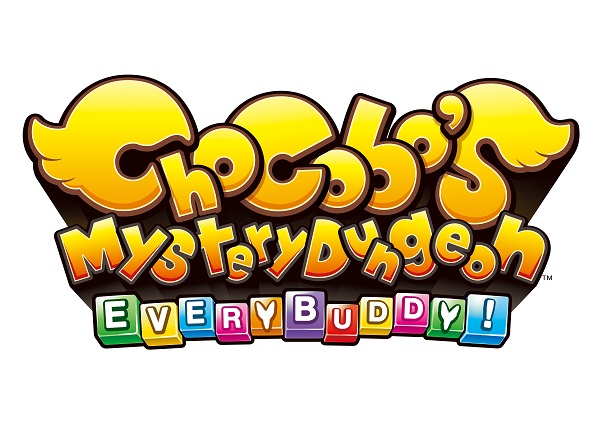Chocobo has something of an identity problem – and I don’t just mean that they’re yellow and make annoying noises, and therefore draw comparisons to those infernal, Mum-meme monstrosities known as Minions. No, it’s more a problem I like to refer to as “the Yoshi conundrum.” Is Chocobo the default for any unnamed Chocobo? We meet Chocobos that do have names, so is calling a Chocobo “Chocobo” like calling a cat “Cat?” Did they call a cat “Cat” in Red Dwarf and nobody batted an eye, making this whole point completely moot? I suspect the answer to all of these questions is “yes,” but answers on a postcard from some JRPG nerd would be appreciated, since I absolutely do not have time to fall down the Final Fantasy rabbit-hole, not again.

So Chocobo’s Mystery Dungeon, then; a celebration of a 20th anniversary in a franchise most people west of Japan weren’t even aware was a franchise. I have had brief encounters with the entry of the series on the Wii, which fortunately this game is a remake of so I’m not starting totally from scratch – and obviously as somebody more obsessed with Pokemon than Paul Hollywood is obsessed with cakes, I know my way around a Mystery Dungeon game. For those of you not familiar, they’re basically the most Rogue-like roguelike to have ever liked Rogue; randomised dungeons, randomised enemy and item placement (but pulling from a predetermined pool), losing all your stuff if you die, turn-based, grid-based combat, all strung together with some half-related plot. It started as it’s own series but essentially has become a micro-genre in and of itself, much like the Souls games – and also like those games they’re harder than Hard Man from Mega Man 3 attending the School of Hard Knocks while reading Charles Dickens’ “Hard Times.” So, pretty hard.

Bird is the Word
Not quite as hard, however, as deciphering this game’s plot, which may as well be delivered in Esperanto for all the difference it makes. It starts with Cid, a treasure hunter, and Chocobo, a Chocobo, exploring an implied-to-be-important tower of sand. When they reach the top, an implied-to-be-evil lady, and her implied-to-be-evil Chocobo, are already there; then a, thing, happens, they all get catapulted across space-time, and Cid and Chocobo end up in the town of Lostime. With me so far? Because that was the simple part. In Lostime, every time the Bell of Oblivion in the centre of town rings, everyone loses their memories – except the people who live on the outskirts of town about 200 yards from the bell. Then an egg falls from the sky, and hatches into a baby, named Rafaello (coincidentally also the name of my favourite Teenage Mutant Ninja Turtles ship). That baby can go into people’s memories and restore them, and gives Chocobo a charm so they can as well, and generally try and piece together the mystery of Lostime and the mystery of Cid’s Grandad’s treasure. And Chocobo goes “fweh” a lot. It’s not exactly War and Peace, or the aforementioned Times that were a smidge tricky, but it’s functional in moving the game along and keeping me engaged, if just because I want to see what utter hilarious nonsense they’ll come out with next.

Enter the Fungeon
Which leaves us with the actual game. As you’d expect for a current-gen remastering it’s had a visual and audio overhaul – the graphics aren’t anything to write home about but they’re pretty enough, and more importantly clean, when dungeons are throwing information at you like Thanos throwing planets. The audio experience fares better; as you’ve come to expect from Square Enix there’s some real catchy riffs in here, as well as some unexpectedly atmospheric pieces. The voice work has been polished up as well, making for a generally pleasant experience, except any time Chocobo opens their mouth, which is nails-on-a-blackboard levels of irritating. The visual design of the dungeons themselves feels a little samey, though this is the price you pay sometimes for true procedural generation, but the combat can be relatively tactical, with attacks having different ranges and inflicting different ailments, knocking enemies around or teleporting them away altogether – a lot of strategy can be employed by those looking for it. This extends to the buddy system too, the titular addition to this edition: just like in real life, once you collect enough Buddy Points from fallen foes, you can bring them along as allies to assist in your adventures, which adds another layer of consideration and a wealth of potential tactics. At least, that’s how I make all my friends.

Chocobo’s Mystery Dungeon is exactly that; a Mystery Dungeon game. From my limited pool of reference I don’t think I would consider it a standout of the genre, but it’s certainly not a bad one either. For Westerners who enjoyed the Pokemon Mystery Dungeon games – and enjoyed them for their gameplay, not because of the fuzzy rodent with jaundice on the box – this is an excellent replacement since appearances from that franchise have become more irregular than the all of Southern Rail’s train services combined. If you’ve never played a Mystery Dungeon game full stop, this is a solid entry point for those looking for something to whet their beak and sink their talons into. For the people who didn’t like those games however, this Chocobo isn’t going to ruffle any feathers.








You must be logged in to post a comment.